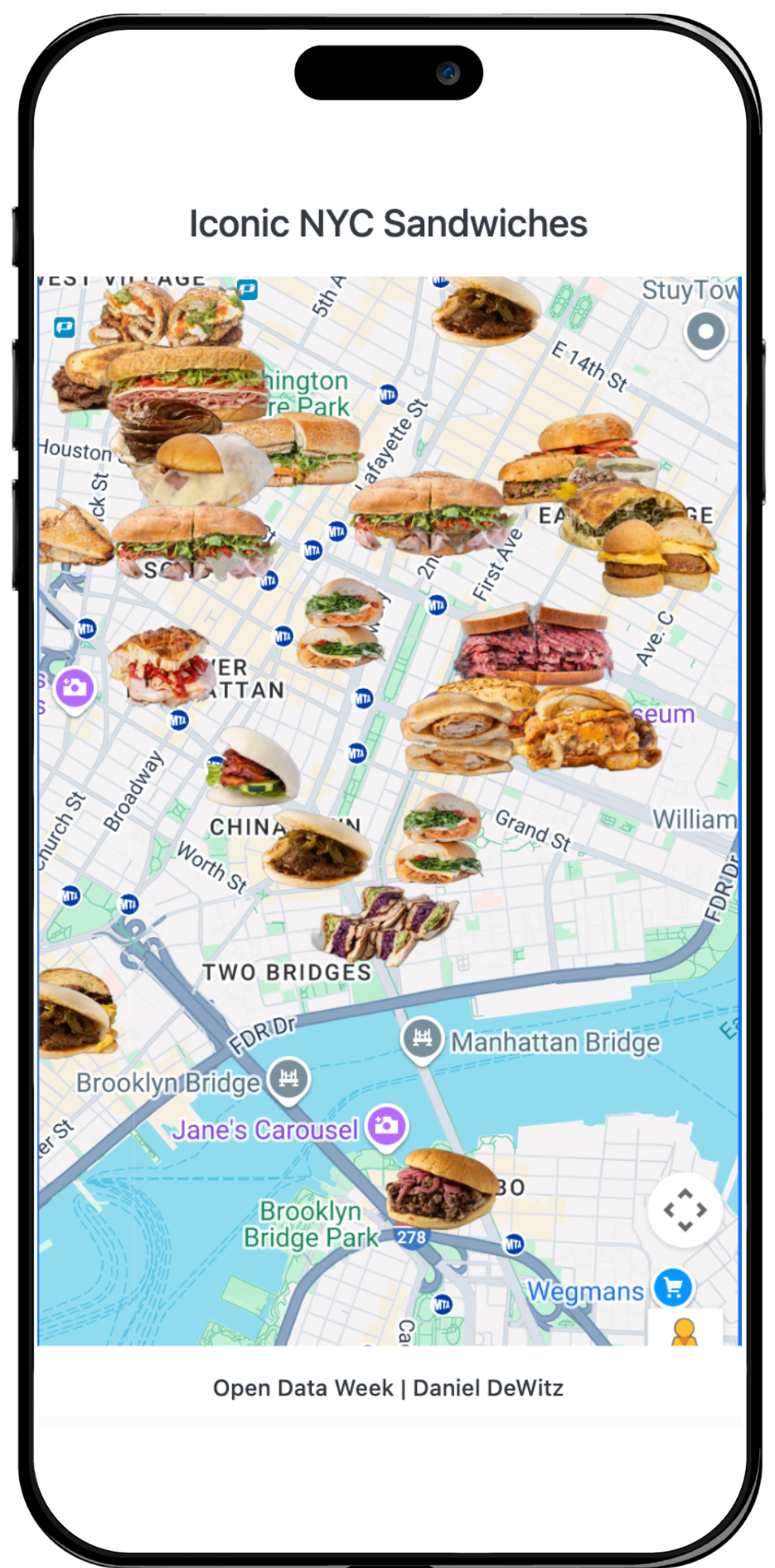Projects
Mapping Iconic NYC Sandwiches with AI:
Scrapping, geocoding, and sharing a map of the NYT Top 57 Sandwiches
Do LLMs help me build a sandwich map or do they lead me into a pit of despair?
Sandwiches are my passion. When the New York Times unveiled its list of 57 sandwiches that define New York City, I wanted to try them all.
The problem: the NYT list only provides sandwich names and restaurant addresses. Determining if I’m near an iconic sandwich requires scrolling, reading, and flipping between the list and Google Maps. The solution: I need a sandwich map!
In this workshop, rather than just traditional coding, we’ll use a large language model (LLM) as a pair programming partner to help us tackle challenges, offer suggestions, and streamline the development process. By the end, you’ll know how to combine basic Python coding with web scraping, Google Maps, and GitHub Pages.

In Transit: Exploring Interactive Effects of Public Transportation on the Gender Leisure Gap
Thesis Submitted to Levy Economics Institute of Bard College – May 2024
There is a persistent gender commuting and gender leisure gap in the United States, with women
making shorter commutes yet still having fewer minutes of daily leisure. Both lines of research
point to a time crunch faced by women; however, the constructs have not been unified under the
same analytical framework. This thesis investigates novel interactions between commuting,
household support trips, public transportation, and leisure.
Because a survey that collects both time-use diaries and detailed travel information does not exist, leisure values are imputed from
pooled waves of the American Time Use Survey (ATUS) ranging from years 2015 to 2019 into
the 2017 National Highway Transportation Survey (NHTS). This analysis targets full-time
workers who are married or cohabiting.
Results suggest that for each additional minute dedicated to either commuting or household support travel, leisure is reduced by roughly 45 seconds and
39 seconds, respectively. Women have 46 fewer minutes of leisure relative to men, even after
controlling for differences in mobility and the presence of children. Otherwise, no statistically
significant gender or racial effects were uncovered. Furthermore, even though commutes using
public transportation take twice as long compared to private automobiles, leisure time did not
differ between public transportation riders and private automobile drivers.